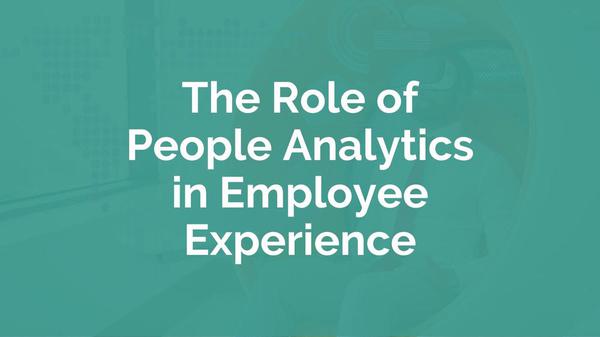
The Role of People Analytics in Employee Experience
70% of survey respondents in our recently published research, conducted in collaboration with TI People, agree that there has been increasing interest in employee experience (EX) among business leaders since the start of the Covid-19 pandemic. The importance of frictionless and frustration-free employee experience is attracting more attention than ever before. There is, however, a risk that interest from business leaders will wane as the impact of the pandemic subsides, as over a quarter of resp































